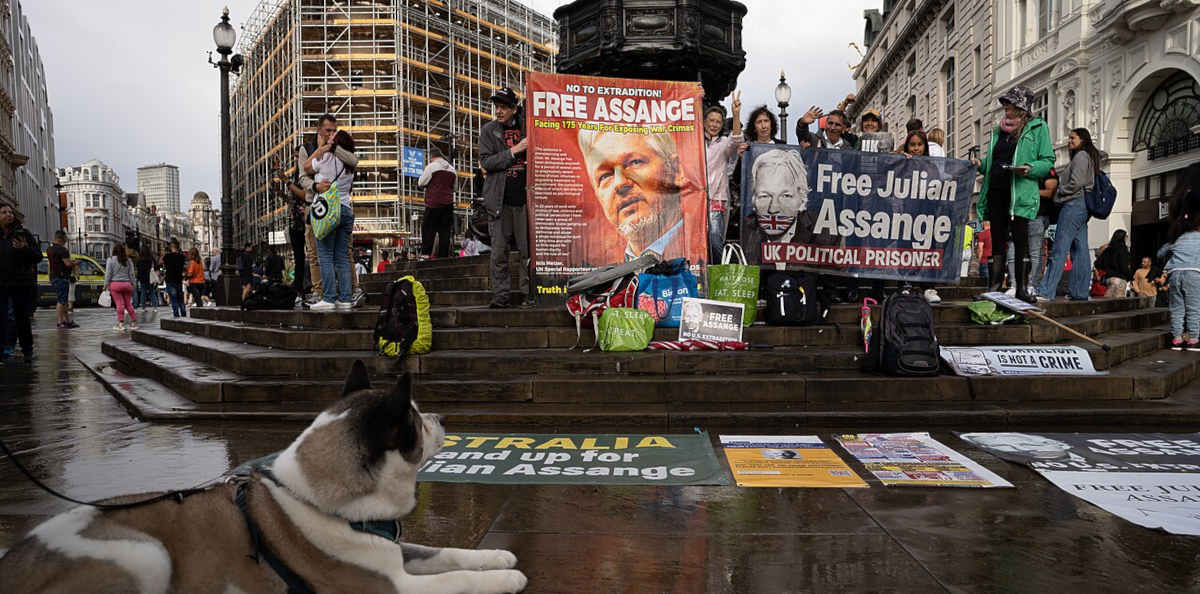The death in an Arctic jail of Alexei Navalny, Vladimir Putin’s most effective opponent, may not have been surprising but, rightly, it has provoked widespread coverage throughout the western media.
The mental and physical abuse Julian Assange, the whistleblower incarcerated in Belmarsh high security prison in southeast London, has suffered is astonishing. But it has attracted exceedingly little comment, even by fellow journalists or MPs.
You don’t have to equate those responsible for Navalny’s death and those responsible for the brutal treatment of Assange, an Australian, who for years has faced extradition to the US and the prospect of never emerging from jail alive. Yet the comparison in the response in Britain to the two cases has been striking.
Assange’s crime was to expose US war crimes in Iraq, including a murderous attack by a helicopter crew of 11 civilians including two journalists in 2007 and the killing of innocent civilians in Afghanistan.
The lack of any committed support for Assange in the British media or in Parliament may partly be due to his decision to hole himself up in the Ecuador embassy in London when he was facing extradition to Sweden where he faced questioning over sexual assault allegations.
But that case was dropped in 2019. He has been held in Belmarsh for nearly five years as a remand prisoner at the behest of the US government.
Scant support
A lone MP, the former Conservative minister, David Davis, has taken up the case, describing the US-UK extradition treaty as ‘massively asymmetric’ and pointing out that MPs had been given assurances that the treaty would not cover political crimes. That pledge has been conveniently ignored by judges, government lawyers, as well as by the former home secretary, Priti Patel, who two years ago gave the green light to Assange’s extradition in a decision since shelved on appeal.
In initiatives virtually ignored in the British media, UN officials have accused the British government of ‘torturing’ Assange. The Australian prime minister, Anthony Albanese, has sharply attacked Assange’s continuing persecution, saying that the whole of Australian shared the view that ‘enough is enough’.
Despite their persistent pursuit of Assange, the US government has never provided evidence that WikiLeak’s exposures caused any serious harm, merely embarrassment. The Obama administration decided not pursue Assange but its successor under Donald Trump charged Assange under the 1917 Espionage Act. Assange could be convicted of charges leading to 175 years in prison. Trump’s decision has not been rescinded by Biden.
This week in London, two high court judges will rule whether Assange can make what could be his latest, and final, opportunity to appeal against his extradition. If they refuse appeal, Assange could be put on a flight to the US in a matter of days.
The judges’ ruling has the potential to prove fatal for Assange who is in failing health, physical and mental. It will also have potentially most serious consequences for freedom of press and expression throughout the world, including Britain. If the US, traditionally regarded as the bastion of free speech, succeeds in extraditing Assange, what hope is there for journalists exposing serious wrongdoings of any government?
The British government’s National Security Act is just one measure that could threaten bone fide journalism by equating whistleblowing and investigative journalism with spying. Despite the government agreeing to some amendments following pressure from media organisations, the language in the proposed new law remains threatening and dangerously vague.
This week will be a crucial one for anyone interested in revealing what oppressive governments want to hide.










